#young dorothy
Text

Doom Patrol by Becky Cloonan
#cliff steele#robotman#larry trainor#negative#dc comics#dorothy spinner#doom patrol#weight of the worlds#dc#becky cloonan#cover art#dc young animal#comics
120 notes
·
View notes
Photo
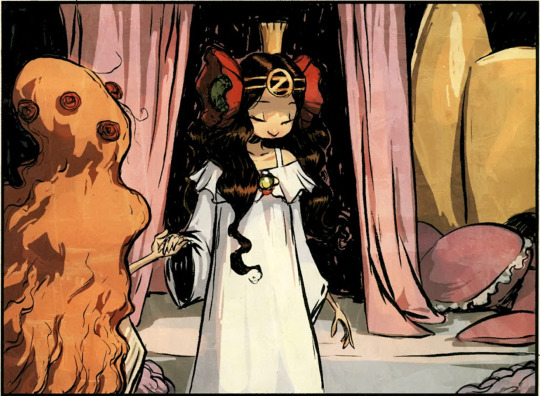

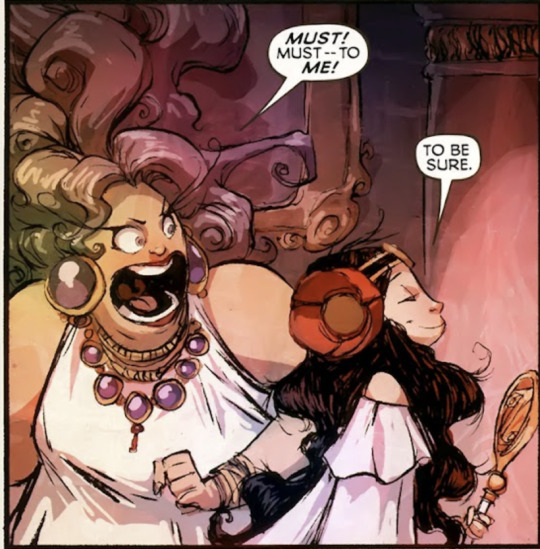

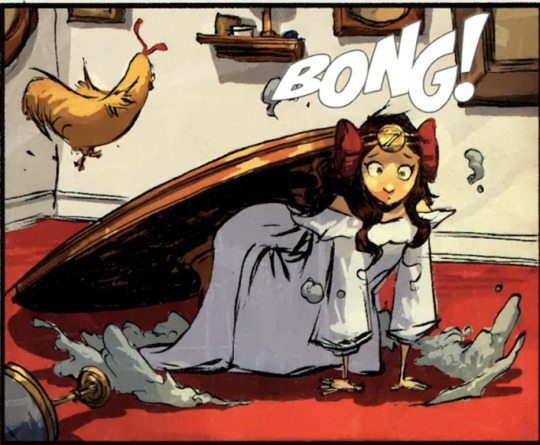
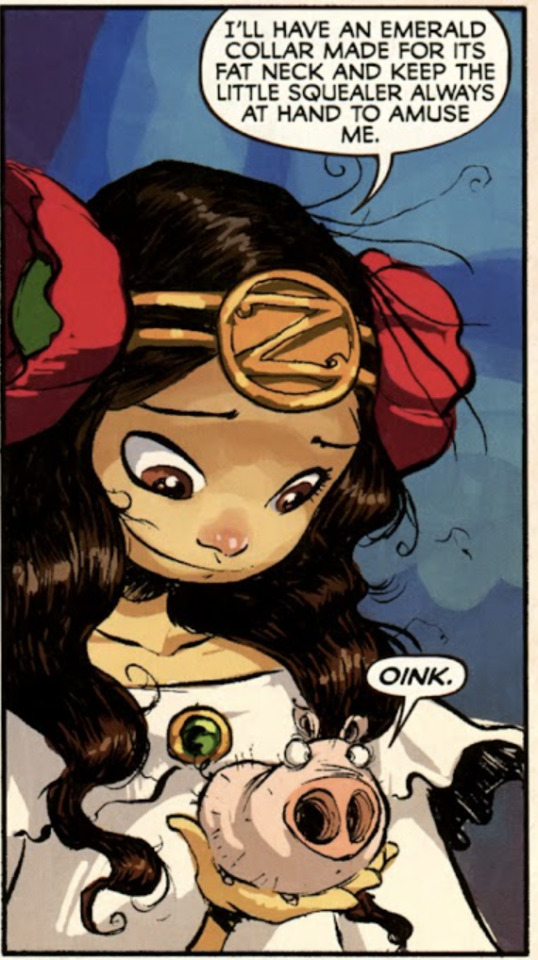

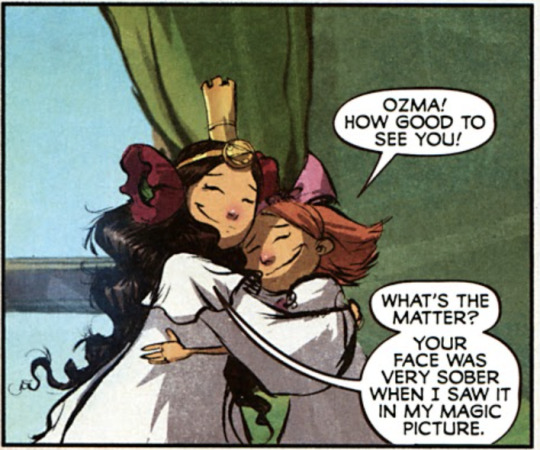
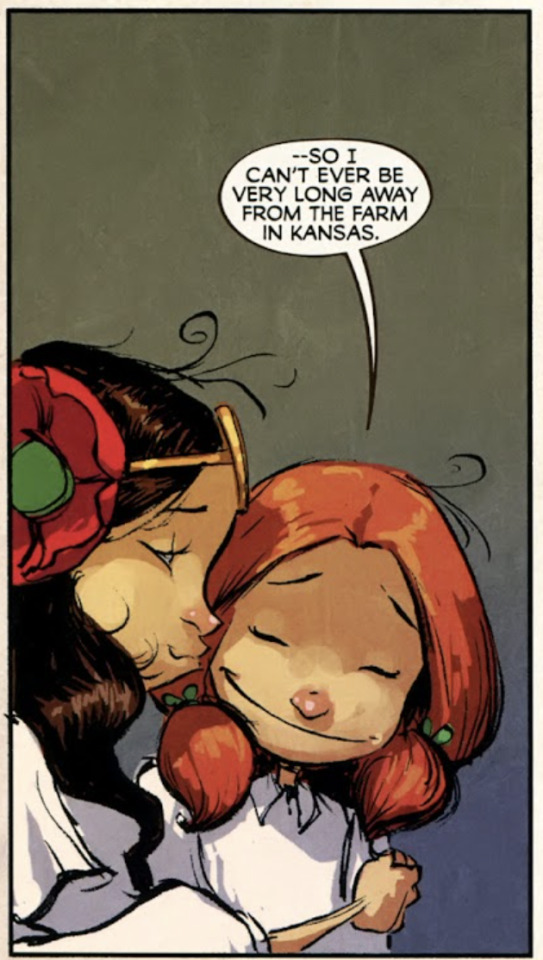
Words cannot describe how much I love Skottie Young’s Princess Ozma. 💕
#the wizard of oz#princess ozma#dorothy gale#dorzma#the scarecrow#the tin man#princess langwidere#the marvelous land of oz#ozma of oz#dorothy and the wizard in oz#the emerald city of oz#marvel comics#skottie young
207 notes
·
View notes
Text
This is not prepared at all, so it's likely going to be messier than usual, but I was in the shower earlier thinking about the Golden Girls (as one does) and I drew a couple of conclusions on the topic of how many children does Blanche actually have? that I wanted to share with you all.
So, first of all, let me sum up the controversy. The issue lies with one of Blanche's statements in S3E3 Bringing Up Baby, when she's trying to convince Dorothy to keep the Mercedes she bought with the money they'll supposedly get after Baby's death:
"I want that car, Dorothy. I will give you anything. [...] I'll give you one of my sons. I have given this a lot of thought. I have had four kids, I have never had a Mercedes."
Ok, everything tracks so far. Blanche has had four kids, some of which are sons. We meet her two daughters, Janet and Rebecca, a few times during the series, so the natural conclusion is that Blanche has four kids, two sons and two daughters.
Which is great, except... her next line in S3E3 is this:
"What do you say? Which one do you want? Biff, Doug, Skippy? No, don't take Skippy, he's got asthma."
She names a Biff, a Doug, and a Skippy, so... three sons. Which, in addition to the two daughters we see in the show, makes for a grand total of five kids. Huh.
Alright, we know that Blanche wasn't the best mother ever, but I find it hard to believe that she forgot how many children she has, so: what's going on here? The obvious explanation is, as always, that this is a continuity error (although it's a really egregious one!), but you folks know I prefer to find a Watsonian explanation wherever I can, so let's see if we can figure out anything interesting.
One thing that struck me when I first realized this discrepancy is her use of the words 'I have had four kids'. Not I have, I have had. Why does she use the past tense here? The sentence flows better with it, but it doesn't make a lot of sense in-universe -- unless you think that she's using 'to have a child' to mean 'to bear a child'. If that's the case, then what she's saying translates to 'I have physically given birth to four kids, I have never had a Mercedes.'
I'm sure I don't have to point out the implications of this, do I? If the number of kids Blanche has given birth to is four, but her total number of kids is five, then that means that one of her kids is not hers in the strictly physical sense, i.e. one of Blanche's kids is adopted. This would solve the discrepancy without breaking the canon elsewhere (as far as I can tell, at least).
For a while, this idea remained in the back of my head to examine at a later date, because it still has a number of issues to work through. For one, why would Blanche (and supposedly George) adopt a child? They had kids of their own apparently without any issues -- why adopt another child, instead of, well... making another child, if they wanted one more? I guess it's possible that fertility issues might have arisen at some point, but that seems unlikely for a number of reasons; that kind of problem is generally genetic in nature, and it tends to be diagnosed upon first try, not after four successful pregnancies. So, then... why?
I was stuck on this point for a long while, until I suddenly remembered this conversation between Blanche and Virginia, her younger sister, during S5E11 Ebb Tide:
"I remember when you were 16 and didn't come home for Father's Day."
"I was away at school!"
"Oh, yes. The Good Samaritan Academy for the Knocked-Up. Two, four, six, eight, all us girls are three months late."
It seems Virginia got into a spot of trouble when she was 16, and was away 'at school' for a while to take care of it. While this might imply that she was sent away to have an abortion, there's also space to hypothesize that she was sent away to carry her pregnancy to term and actually have a baby to then give out to adoption. If this is the case... I wonder if this baby is the one that Blanche and George adopted?
While an adoption seems a bit out of character for young!Blanche (to me, at least: she wasn't interested in her kids, why would she agree to adopt another one?), I think there's some space to consider it. For one, George might have convinced her! We don't know enough about the man to draw clear conclusions, but he did send money to the one child he had out of matrimony (see S5E18 An Illegitimate Concern), so maybe he feels more responsible towards kids near him than Blanche did -- and, well, if he'd asked, Blanche would have agreed immediately, of course. I feel like Big Daddy might have also played a part in this scenario: he could have wanted to keep the child in the family (a Hollingsworth is still a Hollingsworth!), and asked the youngest married couple among his children to take on the responsibility, to shield Virginia from the shame.
Note that this theory has a few issues anyway. For one, while Virginia is Blanche's junior, according to Wikipedia she's only one year her junior, which would put Blanche at 17 when all this happened -- and we know she met and married George much later, when she was already a university student (see S6E9 Mrs George Devereaux). However, I can't find any confirmation for this difference in age in the show itself, so I feel like the hypothesis still deserves some consideration.
As for which of Blanche's children is adopted, well... we can for sure rule out the boys, since she mentions them all by name in S3E3. This leaves her two daughters, Janet and Rebecca. All throughout the series Blanche has a rocky and painful relationship with Janet, even more than she has with the rest of her children:
I would love to have a chance to raise David. I might make up for the mess I made with Janet.
[S1E6 On Golden Girls]
Well, honey, I really do want to see you. I think we have a lot to talk about, Janet. I've been thinking a lot about you, lately.
[S2E16 And Then There Was One]
"I just talked to my daughter, Janet, and she and my granddaughter, Sarah, are coming to visit in a couple of days. Oh, I've never been so happy!"
"Janet? Isn't she the daughter who hates you?"
"[...] She doesn't really hate me, Sophia. We just don't see eye to eye."
[S7E23 Home Again, Rose: Part 1]
As for Rebecca, while we know they stopped talking for a few years due to a disagreement, she seems remarkably closer to her:
We were always so much alike, and so close, just like Siamese twins.
[...]
I have missed her. She's always been my favourite.
[S3E14 Blanche's Little Girl]
Although Rebecca herself seems to have a different perception on their relationship:
You're not happy, Mama. You're doing it again, you're telling me how to live! [...] Nothing's ever enough for you. I had to be the prettiest, I had to be the most popular, I had to be the brightest...
[S3E14 Blanche's Little Girl]
I think there's two possible theories here, neither of which paints Blanche in a good light (but hey, we love these characters because of their qualities as well as their faults, don't we?). If Janet is the child she adopted, I think it's possible she might have been especially neglectful towards her (especially in her first few years); she might have taken her frustration with being convinced to adopt her out on her, as a lack of affection when compared to her other kids. This would explain why the relationship between them is so fraught (certain wounds last a lifetime, I'm afraid).
If Rebecca is the child she adopted, on the other hand, she might have wanted to overcompensate for her abandonment and sort of one-up Virginia ('see, how well I can take care of your daughter? aren't I the better mom?'). She might have showered her with affection (and with expectations, judging from what Rebecca says!) to the detriment of her other kids, which would explain the issues in her relationship with Janet as well.
I don't know. It's obviously very clear that, for all her faults, Blanche adores her children and is deeply pained by her mistakes as a mother; she often expresses regret for her actions and wishes she'd been a better mother:
I realized, too late, that I'd put myself ahead of my children. I've never made up all the time I didn't spend with them. [...] deep down, I wish you were really mine. So I could try again with what I now know.
[S2E16 And Then There Was One]
For all that might have happened in the past, it's evident that Blanche loves all her children equally and considers all of them her own, so she's clearly gotten over any issues she might have had -- but that doesn't excuse her past actions, of course.
There's a whole lot that could be said about Blanche's approach to motherhood, how it connects to the way her parents treated her as a child and to her own internal issues, but as for the question of how many children she has, I feel like this is a satisfying possible answer. It's not airtight by any means, and I'm sure there's other ways to explain the discrepancy (they might have adopted a child from George's side of the family, for one, which would change a lot of dynamics); this is just the one that occurred to me. As always, I'd love to hear everyone's thoughts, so do let me know your ideas about all this!
#god i love blanche so much. psychoanalyzing her is so much fun#i honestly don't know. this is not as canon-compatible as my deductions usually are but it's at least *interesting* enough to share#i'm sure there's probably better explanations than this though. i feel like an adoption has to be involved somewhere#i can't see any other way to explain the 4/5 discrepancy? i briefly thought one of her kids might have transitioned#but that doesn't work for a number of reasons#maybe i'm just not seeing something. do let me know if you have any thoughts about all this i'd love to read them!#even within this theory there's lots of other stuff to consider. for example: does the child in question know? do the other children?#i think the answer is *no* but who knows?#and also: do the girls know about it? and if so how did they react?#i mean -- dorothy also got into trouble when she was very young and rose is an orphan who was adopted into a family#they're bound to have interesting reactions to this sort of thing#but well. this is all from me for now#ta-ta to you all!#the golden girls#blanche devereaux
16 notes
·
View notes
Text

even more au stuff … fiddleford rose has been stuck in my head since @the-eclectic-wonderer mentioned the idea !!! I’m in love !!!!!! Scientist Rose scratches my brain in general actually
#crazy old lady Nylund I guess (why does this sound canon)#she collects pins :) and walks on a stick she found in the woods :)#and also has a strange look in her eyes that no one can ever quite place (everyone’s slightly afraid of her)#I love her SO much and thinking about how she would have progressed through All That was sooooo much fun#a little bit of young rose for you also :) sheeeee#the golden girls#golden falls au#dorothy being a loser nerd in the back (possessed by her gf)#was it casual when she let her inter-dimensional demon gf possess her body & mind#rose nylund#dorothy zbornak#art#artist#artists on tumblr#golden wives
12 notes
·
View notes
Text

The Wizard Of Oz
Art by Skottie Young
#Comics#Skottie Young#Wizard Of Oz#Fantasy#L Frank Baum#Fantasy Comics#Dorothy Gale#Scarecrow#Tim Woodman#Cowardly Lion#Art
53 notes
·
View notes
Text
"Does ford know about 9/11 whos gonna tell him" WHOS GONNA TELL HIM ABOUT AIDS. HUH.
#he was a *ahem* friend of dorothy who dipped out of our universe RIGHT at the beginning of the 80s#and before that he was a shut in for years I doubt he really kept up with the news#not that they were reporting on it then anyway#but like. he's a queer man born in the 50s#he definitely would find out a lot of his old college friends are gone#or ok maybe less friends and more acquaintances he was never the most social guy but anyway#at first he wouldn't be surprised cause like. they're old people die#and then he finds out they were all so young#and then he finds out#and he#and#ahsjdjsjs#and FIDDLEFORD#do we think he used the memory gun to forget how many funerals he'd been to#how many friends died#fuck im like cutting out my own heart the more I think about it#gravity falls#standford pines#ford pines#fiddleford mcgucket
10 notes
·
View notes
Text

Sharing stories
#Lion was fairly young in my version when he first met Dorothy and co#that's why his mane is so tiny here lol#the wizard of oz#dorothy gale#scarecrow#tin man#cowardly lion#toto#fanart#redesign#adaption
47 notes
·
View notes
Text
I was going through my drabbles folder when I came across this & I figured I might as well share it! I guess you could view it as an extension of I’m tired of wanting more / I think I’m finally worn. So uh, enjoy the Dorothy angst under the cut.
Is this it? Dorothy wonders as she stares out into their cold and dark living room, exhaustion wrapped around her like a thick fur coat. It's heavy and fuzzy at the same time; a weight pulling her towards the ground that serves as a protective layer from the world all the same — because nothing can quite make it through the thick haze anymore. Not entirely.
Her bare feet touch the cold hardwood floor and she should've been shivering by all accounts, but she doesn't feel the chill so much as she knows it's there, rationally. She's too tired to mind it. To feel— anything, really, aside from this gaping, desperate exhaustion.
Is this it? She wonders. The moment she'll finally break? The day she'll fall apart?
She's tired. Oh, so tired. Of Stan, of their life together, of the eternal charade she plays — the part of a loving wife and a happy mother; the part of a woman who chose this life, rather than that of a girl crudely pulled under by the currents of life.
She's asked herself this very same question before, and every time, she found she did fall apart — but only briefly. Short enough for her to pick up the pieces and glue herself back together again come morning, when she'll be even more exhausted, sure — but no one will notice anyway.
They never do.
She wonders if she'll fall apart enough for there to be no way back this time — if she'll shatter into so many tiny little pieces, there's no gluing them back together again.
Is it bad, to long for it in some strange, fearful way? At this point, her own involuntary destruction seems like the only salvation within reach.
#that fic comes back to haunt me every few weeks#i haven't even reread it after posting it but it's been living in my mind ever since#anyway someone go and give young dorothy a hug please#she deserves it <3#(did i just realize i have the power to write that? you bet i did)#the golden girls#my writing#dorothy zbornak
8 notes
·
View notes
Text
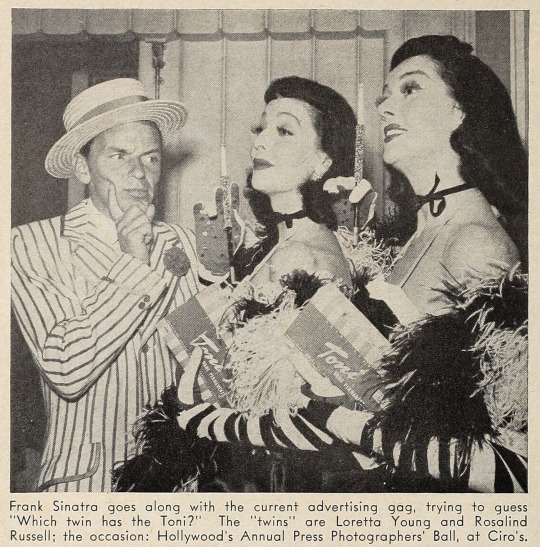



Modern Screen Magazine, January 1949.
#frank sinatra#loretta young#rosalind russell#ava gardner#george jessel#robert mitchum#dorothy spence#dorothy mitchum#roddy mcdowall#colleen townsend#1940s#modern screen magazine#old hollywood#old magazines#old movies#old hollywood glamour#old movie stars#vintage costumes#classic hollywood#40s film#40s movies#1940s cinema#1940s movies
37 notes
·
View notes
Text
"LITTLE WOMEN" (1978) Review
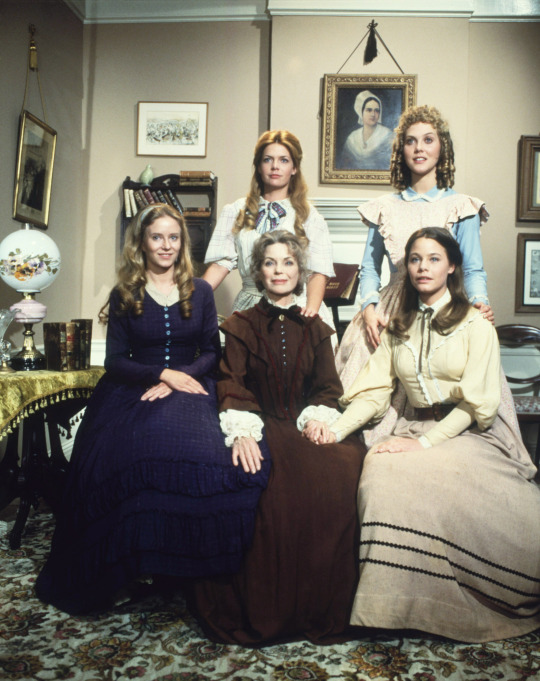
"LITTLE WOMEN" (1978) Review
There have been many adaptations of "Little Women", Louisa May Alcott's 1868 novel. And I have seen most, if not all of the live-action versions. But the first adaptation I have ever seen was NBC's adaptation that first aired back in 1978. If I might be honest, I ended up developing a rather high opinion of it.
Since my first viewing of 1978's "LITTLE WOMEN", I have seen other adaptations. And over the years, I had developed this belief that this television production from 1978 had not been good as I had originally believed. It took many years for me to give this two-part miniseries a second chance. "LITTLE WOMEN" told the story of Josephine (Jo) March and her three sisters during the 1860s - Meg, Beth and Amy. The two-part miniseries opened during the Christmas holidays in December 1861 and follow the sisters, their other family members and friends throughout the Civil War and the early post-war years. Because Jo is the main character, despite being the second sister, this adaptation of "Little Women" has the distinction of being the only version that allows her to serve as narrator.
After my recent re-watch, I could see why my opinion of "LITTLE WOMEN" had diminished over the years . . . at least from a superficial point-of-view. To be blunt, I was not that impressed by the miniseries' production values. The entire production was shot on the Universal Studios backlot and one could sometimes see the California hills in the background. Granted, I still believe set decorator Richard G. Goddard, art director Howard E. Johnson and cinematographer Joseph F. Biroc did the best they could to recreate 1860s Concord, Massachusetts, New York City and Italy. But I did have a problem with the miniseries' costume designs. On the surface, they seemed . . . serviceable for a television production set during the 1860s. But if I must be frank, the costumes also looked as if they had been taken from a costume warehouse for second-rate stage productions. Even worse, all or most of the actresses seemed to be wearing mid-to-late 1970s shoes underneath their mid-19th century dresses and gowns. I was shocked to discover that one of Hollywood's most iconic costume designer, Edith Head, had created the miniseries' costumes. So . . . what on earth happened? Head had created the costumes? "LITTLE WOMEN" was not even Head's first or last period drama. So, what happened?
Did I have any other problems with "LITTLE WOMEN"? Well . . . I did not care for leading actress Susan Dey's hairstyle in the second part of the miniseries. I realize her character, Jo March, had cut her hair to raise funds for her mother's journey to Washington D.C. But her hair never grew back. Never. Instead, it remained shorter than it originally was and styled into a bob. Why? And I had a problem with two particular performances. I will discuss one of them later. The other involved leading lady Susan Dey serving as the miniseries' narrator. Do not get me wrong. Dey is a fine actress and did the best she could. But I found her narration a bit clunky and unnecessary, thanks to the words provided to her by screenwriter Suzanne Clauser's teleplay.
Despite my quibbles, I found a lot to admire about "LITTLE WOMEN". I believe its status as a two-part miniseries, instead of a movie, screenwriter Suzanne Clauser had plenty of opportunities to fully adapt Alcott's novel with less shortcuts and more depth. I have always believed that Alcott's novel was basically a coming-of-age story for Jo March and her three sisters. To me, this made any adaptation of "LITTLE WOMEN" a major character study. And if there is one thing that the two-part miniseries did well was explore its characters and their situations with great depth.
This especially seemed to be the case of Jo's relationship with her neighbor and friend, Theodore "Laurie" Laurence, his personal relationship with his grandfather James Laurence, Amy's European trip and her romantic travails, and Meg's relationship with Laurie's tutor John Brooke. I was especially impressed by the production's handling of Jo's relationship with Professor Friedrich Bhaer. I found it very dynamic, thanks to Suzanne Clauser's screenplay, along with the performances involved. Some, but not all of the adaptations of Alcott's novel tend to forget - at times - that part of it spanned most of the U.S. Civil War. Fortunately, this adaptation never forgot. And as much as I seemed critical of the miniseries' narration, it also reminded television audiences that . . . yes, part of "LITTLE WOMEN" was partially set during the Civil War.
Speaking of performances, "LITTLE WOMEN" had the blessed luck to feature a first-rate cast. I may not have been impressed by the narration provided by Susan Dey (for which I blame another), I was more than impressed by her portrayal of the story's leading character, Josephine "Jo" March. I though she did a superb job in capturing Jo's mercurial personality and obsession with her developing profession as a writer. Meredith Baxter gave an excellent performance as the oldest March sister, Margaret "Meg" March. She conveyed Meg's vanity and obsession with the family's social status and stubborn refusal to give up her love for John Brooke. My only issue is that I believe the actress may have been a bit too old portraying a character that aged from 16 to her early 20s. Eve Plumb portrayed the shy, yet musical Elizabeth "Beth" March. I thought she did an excellent job of combining Beth's emotional, yet retiring nature and in the end, gave a very poignant performance. Ann Dusenberry was roughly 24 to 25 years old when she portrayed the youngest March sibling, Amy. Before my recent re-watch of "LITTLE WOMEN", I had assumed she was too old to portray a younger Amy. But upon my viewing, I realized that she actually managed to give a rather convincing and skillful performance of Amy during the war years (between ages 12 and 16) without to resorting to exaggerated histrionics. And I also admired her portrayal of the older Amy who found herself drawn between two men during her European trip.
I cannot deny that most of the actors who have portrayed Theodore "Laurie"/"Teddy" Laurence over the years gave some pretty damn good performances. But I believe that Richard Gilliland's portrayal of the emotional and moody "Laurie" has to be one of the two best I have ever seen, hands down. His only equal - at least in my eyes - is Jonah Hauer King's performance in the 2017 BBC miniseries. But if I had to choose my favorite portrayal of Laurie's stern, yet warm grandfather, James Laurence, it would be the one given by Hollywood icon Robert Young in this miniseries. May I be frank? I believe both actors provided some of the production's best dramatic moments in their depiction of the developing relationship between grandson and grandfather.
Dorothy McGuire gave a fine performance as Mrs. March aka "Marmie", the four sisters' mother. Thanks to the actress' performance, her Mrs. March seemed more like a well-rounded human being, instead of an archetype. Greer Garson was in fine form as the March family's tart-tongued, yet wealthy matriarch, Aunt Josephine March. William Shatner was excellent as the German-born professor who befriended Jo in New York City, Professor Friedrich Bhaer. Although I found his German accent a bit questionable, I cannot deny that he managed to provide a great deal of energy and complexity to Friedrich's relationship with Jo. Cliff Potts gave a solid performance as Meg's love interest and Laurie's tutor, John Brooke. I can say the same about Virginia Gregg, who portrayed the family's housekeeper, Hannah Mullet. I wish I could provide a better opinion of William Schallert's portrayal of the sisters' father, John March, but his presence in the miniseries seemed very limited, aside from one scene that featured the birth of Meg's children. One performance really failed to impress me and it came from John de Lancie, who portrayed Laurie's English-born classmate from Harvard and Amy's suitor, Frank Vaughan (Fred in the novel). Quite frankly, I found his performance a bit off. Knowing de Lancie for the first-rate actor he truly is, I suspect that between Alcott and screenwriter Suzanne Clauser's writing, the character ended up as a flat, one-note plot device - a situation that not even de Lancie could rise above.
Yes, I had some issues with "LITTLE WOMEN". I found some of the production values questionable, especially some of Edith Head's costumes, the hairstyles and one particular character. But overall, I believe it proved to be a first-rate adaptation of Louisa May Alcott's novel. If I must be frank, thanks to David Lowell Rich's direction, Suzanne Clauser's screenplay and a superb cast led by Susan Dey, I consider the 1978 adaptation of Alcott's novel to be among the three best I have ever seen.
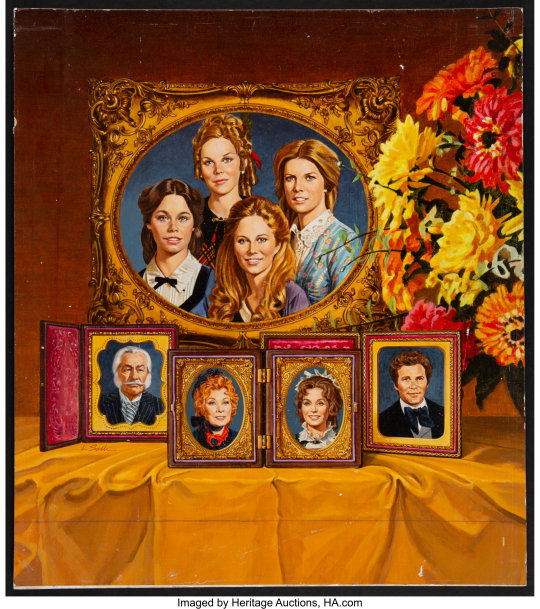
#little women#little women 1978#louisa may alcott#susan dey#jo march#meredith baxter#meg march#eve plumb#beth march#ann dusenberry#amy march#richard gilliland#theodore laurie laurence#dorothy mcguire#marmee march#robert young#greer garson#william shatner#john de lancie#david lowell rich#virginia gregg#cliff potts#u.s. civil war#gilded age#william schallert#joyce bulifant#carlene watkins#period drama#period dramas#costume dramas
13 notes
·
View notes
Text

speaking of the gravity falls au … 😭😭😭
#WOW she’s a loser /affectionate#young dorothy as an insane scientist setting up summoning circles for her ‘muse’ just feels right for some reason#insane scientist dorothy just scratches my brain in general honestly#going to sleep now but there shall be more (and finished) things soon … I have a longish break coming up!! yay!!!
3 notes
·
View notes
Text
I didn't ask for any of this. I didn't ask to be some kind of hero.
But when your whole life gets swept up by a tornado—taking you with it—you have no choice but to go along, you know?
Sure, I've read the books. I've seen the movies. I know the song about the rainbow and the happy little bluebirds. But I never expected Oz to look like this. To be a place where Good Witches can't be trusted, Wicked Witches may just be the good guys, and winged monkeys can be executed for acts of rebellion. There's still a yellow brick road—but even that's crumbling.
What happened? Dorothy.
They say she found a way to come back to Oz. They say she seized power and the power went to her head. And now no one is safe.
My name is Amy Gumm—and I'm the other girl from Kansas.
I've been recruited by the Revolutionary Order of the Wicked.
I've been trained to fight.
And I have a mission.

#book: dorothy must die#author: danielle paige#genre: fantasy#genre: retelling#genre: young adult#year: 2010s
9 notes
·
View notes
Note
Love the song you posted! And love that it's entirely possible that Dorothy loves it since she def would've heard it, and a lot of the songs she likes in canon are older. How did you come across it
I know, right?? It's so sweet, I adore it!!
I was looking for some 1940s songs for a personal project of mine a while back, and when I stumbled into this little gem I was immediately reminded of Dorothy. There's something about the general atmosphere of the song, that wistful dream-like quality it has, that just *screams* Dorothy to me. We all know she's got a somewhat rough, disillusioned exterior, but she's a big softie at heart -- she doesn't believe she'll ever get that dream-like romance, but she still yearns for it! She just wants the chance to give all the love she's capable of giving to someone who will give it back to her!!
And I mean -- look at those lyrics!!
I can see
No matter how near you'll be
You'll never belong to me
But I can dream, can't I?
I'm aware
My heart is a sad affair
There's much disillusion there
But I can dream, can't I?
Can't I adore you?
Although we are oceans apart
I can't make you open your heart
But I can dream, can't I?
I feel like this applies both to young!Dorothy and the early stages of her marriage and to canon!Dorothy and her general attitude towards love (*especially*, but not only, in the context of the Golden Wives).
This has been talked about extensively on here, so I'm really not saying anything new, but it's pretty clear that Dorothy did do her best to be a loving wife to Stan, during their 38 years together. Whether this is because she actually loved him or because she felt that it was her duty to be a good wife to him can be debated (personally I feel like it's a bit of a mixture of the two, if that makes sense), but I think it's canon that she went above and beyond for him. Even just the fact that she stayed with him for 38 years through cheating, lying, horrible mistreatment, financial issues, etc etc is proof enough that she really did whatever she could to love him, imho -- and all of this without ever being loved back. There's several moments in the series where Stan shows a modicum of decency and she all but melts because of it (see e.g. S4E10 Stan Takes A Wife), and you can just tell that she's been surviving on these crumbs for all her life, hoping and praying that this time, surely, it will last. I can't make you open your heart, but I can dream, can't I? Yeah.
And then -- canon!Dorothy. She's obviously disillusioned when it comes to life in general and love specifically; she puts herself out there, and she can be pretty impulsive at times (her reaction to John Neretti in S6E22 What A Difference A Date Makes never fails to make me laugh), but she has the hardest time believing that good things will last. Her heart is a sad affair. Take for example what she says to Glen in S1E14 That Was No Lady:
"You know, every time you tell me you love me, I turn around to see who you're talking to. I can't believe it."
That's an underlying theme every time she has a serious relationship with someone she likes: she can't believe it's happening. Is that any wonder, considering the marriage she lived through?
Finally -- the Golden Wives. Or any Dorothy ship that involves one of the other Girls, really. All of my points above still stand, and there's the added complexity of Dorothy grappling with her sexuality and being certain that Rose and/or Blanche couldn't possibly love her back, no matter how close they are as friends. Because -- of course they couldn't! They both had husbands they loved with all their hearts! They both have active and vibrant love lives with men! And she's just Dorothy -- tired, sad, Dorothy, always too tall and too brash and not feminine enough and just not enough to be loved back. What could the other Girls find in her? No matter how near you'll be, you'll never belong to me. But she's Dorothy, she's a bleeding heart, and so she can't help but dream, in the hidden corners of her soul. You get what I mean?
Oh, anon, I'm sorry -- this turned into a bit of a ramble, but I just love this song so much and I think it fits Dorothy so well!! Add to this the fact that it came out in 1949 (canonically the year she married Stan) and it all becomes even more painful to me :') I wouldn't be surprised if she had a soft spot for this song!
#i'm so glad you liked it!! i really enjoy this kind of 40s-50s song by harmonizing female trios/quartets#and this one really was an instant fav#oh dorothy... i just want to give her a big hug...#the fact that she managed to keep her soft nature under all those barriers is crazy to me. she could have turned into a bitter old gal#she could have killed the sweet young girl at the center of her being#and instead she armored up in every way she could -- but her core is still there.#that 17yo girl she had to leave behind is still there at the center of her being and she just wants to love and be loved and i have to stop#here because i'll cry excuse me#i just love her so much ;-; she deserved so much better!!!#and i'm so happy that she got to find love and companionship after her divorce!!! she deserves all the love in the world!!!#a big part of me is still mad at the writers bc they decided to tear her away from her wives and ma bc you KNOW she didn't want to go!!!#the golden girls#golden wives#dorothy zbornak#ask
7 notes
·
View notes
Text

randomly thought of that bit where dorothy lists off all the chores she had when she lived with Sophia (& blanche’s jaw hits the floor) & it made me giggle, so here’s an exhausted dorothy inspired by it 😭
#<333 beloved#the golden girls#dorothy zbornak#young!dorothy#art#artist#artists on tumblr#digital drawing#digital art
13 notes
·
View notes
Text
I finally have something to post. It's another 5+1, which I had to split into chapters after it got too long but don't worry everything is ready to go, I just have to post over the next week.
A Dream is a Wish your Heart Makes - The Golden Girls- M (for now) - Dorothy/Blanche: 5 times Blanche dreams of Dorothy. +1 time Dorothy dreams of Blanche.
#the golden girls#dorothy zbornak#blanche devereaux#blanche x dorothy#this first chapter has a young dorothy and blanche but young rose does pop up later on#for some reason my mind went blank trying to think about tags for this so those will probably change#and i hated the way Dennis cheated so Kate got rid of him and is pregnant with someone else#its not important but i feel like i should point it out#aiming to post once a day but im working again so i may forget#i truly become a different person when im working
3 notes
·
View notes
Text
LES DENTS DE LA MER (1975)






























Pendant l'été du 1er juillet 1974, sur l'île d'Amity, un groupe d'étudiants fait la fête sur la plage. Une jeune femme s'éloigne du groupe pour un bain de minuit alors que son flirt s'endort sur la plage, ivre. Après quelques brasses, la jeune femme est attaquée par une force mystérieuse, elle tente de résister mais est happée et disparaît dans l'eau en poussant des cris de terreur. Quelques secondes après, la mer retrouve son calme nocturne. Personne ne sait ce qui vient de se dérouler.
Le lendemain, à la suite de la déclaration de la disparition de la jeune femme, Martin Brody, nouveau chef de la police locale originaire de New York, découvre les restes de la victime. Il attribue aussitôt cette mort à une attaque de requin, mais sous la pression du conseil municipal et aussi en raison de son inexpérience sur cette île, il suit les recommandations du médecin légiste de l'île et conclut à une mort accidentelle (noyade et choc avec un bateau).
Quelques jours après, un enfant est happé à son tour par le requin, et cette fois les témoins sont nombreux à assister à la scène. Le doute n'est plus permis : un requin rôde le long des plages d'Amity.
Le conseil municipal est confronté à un choix douloureux. Il peut adopter des mesures de protection le temps de se débarrasser du requin, c'est-à-dire interdire la baignade. Mais ceci mettrait en péril l'activité touristique de l'île à quelques jours du 4 juillet, la fête nationale américaine.
De plus, la mère de l'enfant a passé une annonce dans les journaux locaux et promet 3 000 dollars à qui tuera le requin. Le conseil s'inquiète de la publicité négative sur la ville et également de l'arrivée en masse de pêcheurs plus ou moins qualifiés pour obtenir la récompense. Parallèlement, Quint, un pêcheur local, propose ses services au conseil municipal pour tuer le requin mais il exige 10 000 dollars.
Le chef Brody essaie de son côté d'en savoir plus sur les requins et fait appel à l'institut océanographique pour avoir les conseils d'un expert. Matt Hooper, l'expert, arrive sur l'île le 2 juillet. Dès son arrivée, il demande à examiner le corps de la première victime et démontre de manière irréfutable qu'il s'agit d'une attaque de requin. Peu après, le même jour, des pêcheurs tuent un requin-tigre. Le maire exulte mais Brody, sur les conseils de Hooper, émet des doutes sur la responsabilité de ce requin dans les attaques : la mâchoire qui a attaqué la première victime serait beaucoup plus grosse que celle du requin pêché. Le maire refuse de suivre les recommandations du chef de la police et pense avant tout à l'afflux de touristes pour le 4 juillet. Les plages seront surveillées, mais interdiction de les fermer, même après qu'une autopsie du requin prouve qu'il avait le ventre vide.
Le 4 juillet, alors que la police et les gardes-côte surveillent la mer, le requin parvient à déjouer la surveillance et attaque à nouveau. Le maire n'a plus le choix : il accepte la proposition de Brody et engage Quint pour tuer le requin. Bien qu'il soit aquaphobe, Brody est de la partie. Hooper se joint également à la chasse pour apporter son expertise sur les requins. Quint et Hooper ne s'apprécient guère pour commencer mais brisent la glace avec une beuverie en mer. Après plusieurs essais, les trois hommes tentent un ultime essai pour tuer le requin. Hooper descend dans une cage anti requin avec un poison dans son harpon pour le lui faire avaler. Mais le requin attaque et détruit la cage manquant de peu de dévorer Hooper qui se réfugie au fond. Le requin attaque à nouveau et tue Quint. Brody réussit à faire avaler une bouteille d’oxygène au requin et le tue en le faisant exploser en tirant sur la bouteille avec un fusil. Hooper remonte à la surface et retrouve Brody. Ils réussissent à atteindre le rivage durant le générique de fin.
#Les Dents de la mer#Jaws#Steven Spielberg#John Williams#Peter Benchley#Roy Scheider#Robert Shaw#Richard Dreyfuss#Lorraine Gary#Murray Hamilton#Carl Gottlieb#Jeffrey C. Kramer#Susan Backlinie#Chris Rebello#Lee Fierro#Dr. Robert Nevin#Chris Anastasio#Henry Carreiro#Fritzi Jane Courtney#Dorothy Fielding#Mike Haydn#Carla Hogendyk#Belle McDonald#Ayn Ruymen#John Searle#Dick Young
3 notes
·
View notes